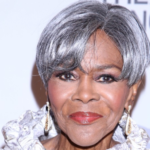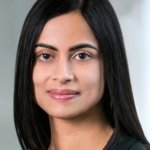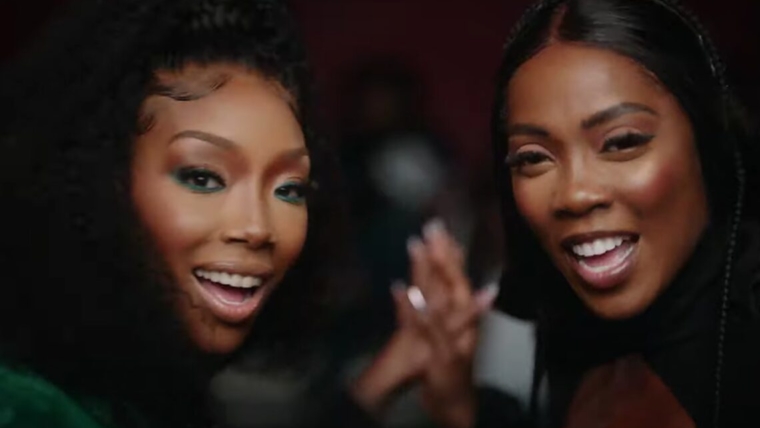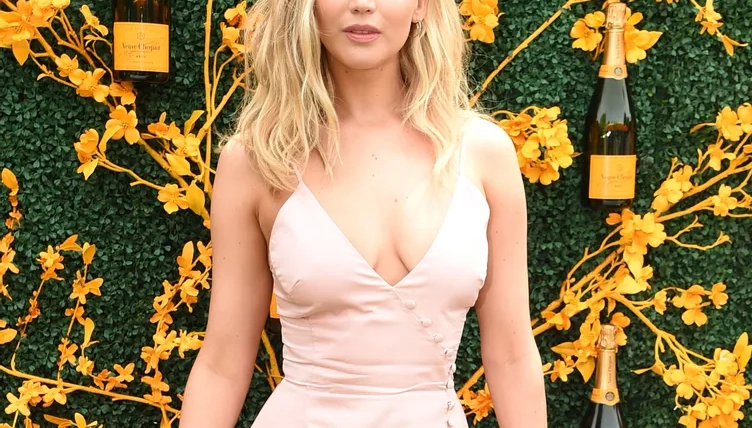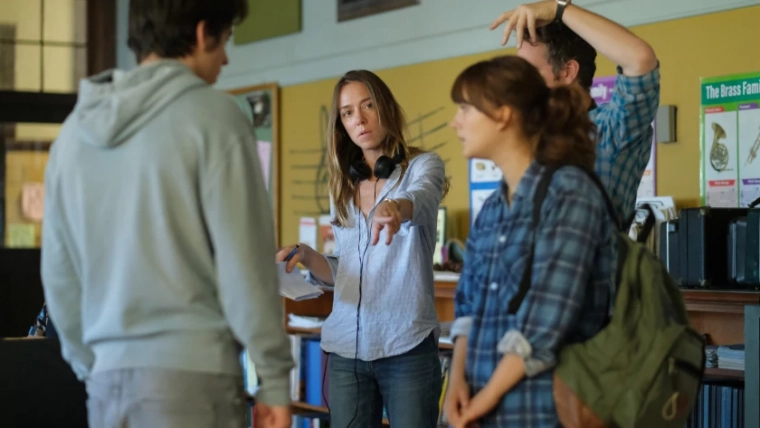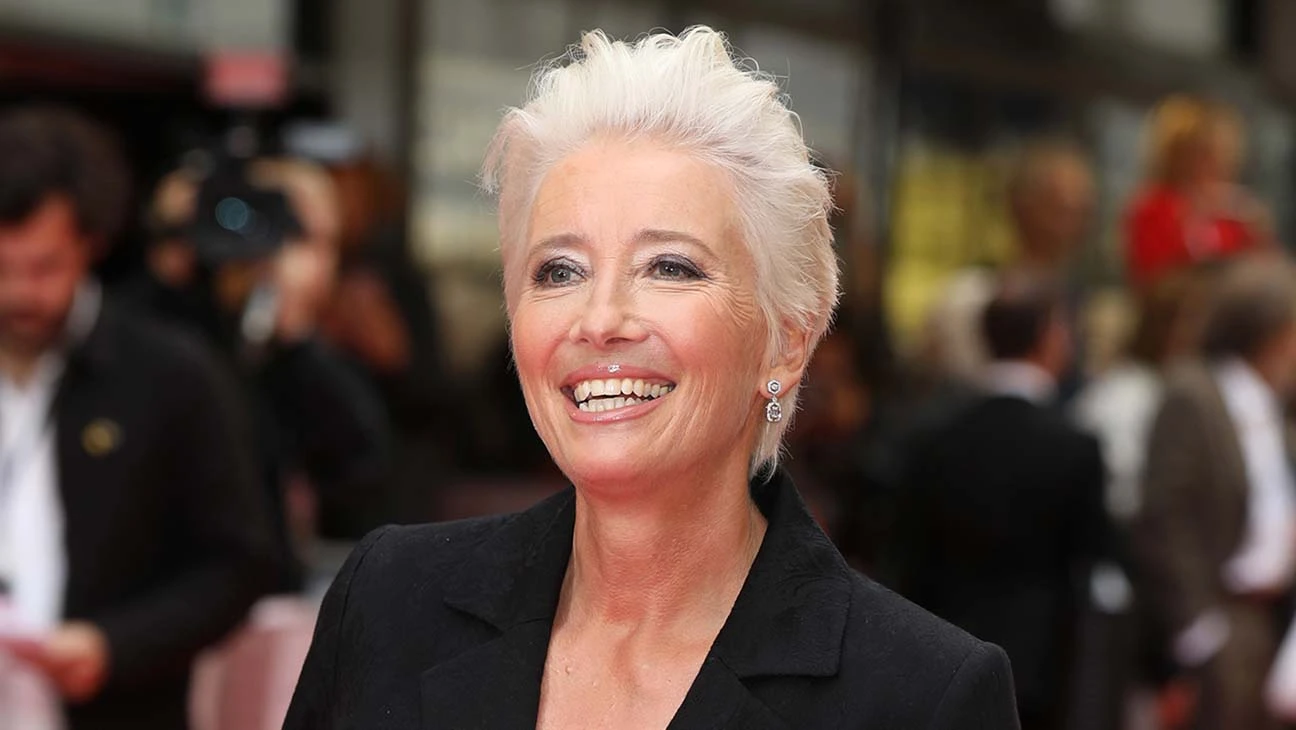
Actresses In Their 40s Are Finally Getting Interesting Roles
By Helen Lewis
In 2019, a 60-year-old Emma Thompson explained her sudden career renaissance. She had spent her youth playing romantic leads, but once she turned 40, she said, she could fill such roles only “in a pinch.” The offers became more limited, the parts smaller: a batty clairvoyant in the Harry Potter series; a wronged wife in Love Actually; the voice inside Will Ferrell’s head in Stranger Than Fiction. Then another decade passed, and the opportunities became interesting again. Hallelujah! In the past five years alone, Thompson has played a High Court judge in The Children Act, an uptight television host in Late Night, and the British prime minister (twice).
Thompson had experienced what we might call “the dry decade.” The midlife plight of women in Hollywood was immortalized in an Amy Schumer sketch that achieved instant cult status when it aired six years ago. Three actresses are enjoying a picnic in a wooded glade. The women around the table—Patricia Arquette, Tina Fey, and Julia Louis-Dreyfus—are all attractive, smart, and funny. But that doesn’t matter. They’re over the hill in Hollywood’s eyes. Fey notes that eventually, women realize that the poster for their movie is “just, like, a picture of a kitchen.” Louis-Dreyfus adds that such films have “these very uplifting and yet vague titles, like Whatever It Takes or She Means Well.”
In 2012, two economists from Clemson University analyzed the gender balance of American films from 1920 to 2011 and offered a more wonkish take on the phenomenon. Overall, they found that men accounted for two-thirds of all roles in mainstream movies. For starring roles, however, age is everything. At 20, women play four-fifths of leads: Hollywood is very interested in them at their nubile prime. Fast-forward to 40, and that statistic is reversed. Men utterly dominate the juiciest parts. The male-female gender split then hovers around 80–20 until, well, death.
For the few women actors who come out the other side of the dry decade, the rewards can be mixed. No longer able to portray ingenues, brides-to-be, or manic pixie dream girls, or be the Avengers’ diversity hire (sorry, Black Widow), older actresses graduate into the other popular category open to women: hags and harpies. Meryl Streep once described the parts she was offered after 50 as women who were “gorgons or dragons or in some way grotesque.” Sure enough, Thompson’s late-career roles also include the Baroness in Cruella, Goneril in a TV-movie version of King Lear, and Miss Trunchbull in the upcoming musical adaptation of Matilda. Monsters, one and all.
But biology, it turns out, needn’t be destiny. A new generation of actresses has discovered an answer to the dry decade, and is showing the rest of us what we’ve been missing—stories that capture the fullness of women’s lives.
To understand the problem (and because the experience is always pleasant), consider Tom Hanks. He might be “America’s Dad,” but his career represents a type of ageless versatility long afforded by the film industry—to male actors. In his 30s, Hanks wooed Elizabeth Perkins in Big, Meg Ryan in Sleepless in Seattle, and Robin Wright in Forrest Gump. (I am excluding Beasley, the dog from Turner & Hooch, from this analysis, though IMDb sadly records that Beasley never worked again.) Hanks’s next decade was anything but dry. In his 40s, he played an FBI agent in Catch Me If You Can, a Mob enforcer in Road to Perdition, Woody in Toy Story, and a man stranded on a deserted island in Cast Away, among other roles.
But what about his female co-stars? Their 40s were not exactly dazzling. At 41, Meg Ryan jettisoned her sweet, goofy image in In the Cut, playing an English teacher drawn into a sexual relationship with a potential serial killer. She has since said that the film marked a “turning point” from which her career never recovered.
Neither Elizabeth Perkins nor Robin Wright fared well in the film industry, either. But they did have success elsewhere—and this is where the story of the dry decade takes an intriguing turn. Perkins spent her mid-to-late 40s on Showtime’s Weeds, as the lead character’s narcissist neighbor, Celia—and earned three Emmy nominations for the role. At 46, Wright started playing Claire Underwood in House of Cards, and by the final season had graduated from first lady to president.
Perkins and Wright were among the first wave of women to benefit from the golden age of television. Since then, the streaming wars have created a huge demand for new dramas, and the increased opportunities are obvious. In her 40s, Reese Witherspoon has starred in Big Little Lies, Little Fires Everywhere, and The Morning Show. (As a bonus, the last of these also rescued Jennifer Aniston from a film industry that never quite seemed to know what to do with her.) The HBO remake of Scenes From a Marriage gave 44-year-old Jessica Chastain a role every bit as challenging as an Ibsen heroine. At 46, Sandra Oh began playing a weary spy locked in a deadly pas de deux with a glamorous assassin in Hulu’s Killing Eve. And at the same age, Kate Winslet undertook one of the standout roles of her career, as Mare Sheehan, the stoic detective in HBO’s Mare of Easttown.
Compared with the dead ends that Ryan, Perkins, and Wright encountered in traditional Hollywood, the trajectory for female stars is thriving on the competition among HBO, Amazon, Apple, Netflix, and others. A glut of roles now combine the personal and the professional, offering a chance not to be pigeonholed as “the wife” or “the mom”—or, conversely, the career woman free of domestic responsibilities. Think about the dry decade: It has amounted to a desert of roles between love interest and empty nester, as Hollywood has struggled to incorporate the challenges of motherhood into narratives about women engaged elsewhere too.
The 2010 film Salt, about a CIA spy accused of being a Russian sleeper agent, is a notorious example of the basic motherhood problem. Originally intended for Tom Cruise, the script was rewritten for its eventual star, Angelina Jolie. That entailed one big change: Edwin Salt was a parent; Evelyn Salt was not. “If a woman had a child, I think it would be very hard for us not to imagine her kind of holding on to that child through the entire film,” Jolie said at the time. “Which is strange—but I think audiences would allow a man to have a child and the child [could] be with the wife back at home.” (When making Salt, Jolie herself was a working mother of six children, including 2-year-old twins.)
Television series are hungry for plotlines, and their cast lists spread like tree roots as seasons progress, giving women new room to grow. In stark contrast to the narrowness of Jolie’s role in Salt, Keri Russell transitioned from her late 30s into her 40s as Elizabeth Jennings on The Americans, navigating the identities of mother, travel agent, and Soviet spy. In The Queen’s Gambit, deft touches filled out the portrait of Beth Harmon’s alcoholic adoptive mother, Alma, played by Marielle Heller, who had recently turned 40.
In accommodating characters who are mothers, without that being their onlyidentity, television has brought new tensions and texture to established genres. Where male detectives have tended—to the point of cliché—to be troubled, maverick loners, Olivia Colman’s Ellie Miller found her investigations complicated by her own family turmoil and deep links to the local town in the British crime show Broadchurch. Kate Winslet’s Mare Sheehan is similarly embedded in her community, at the center of a loving, chaotic, and grieving clan in the kind of suburb where everyone has secrets and everyone is trying to cope: with addiction, with loss, with something as mundane as America’s lack of affordable child care.
The wide-angle lens of television invites immersion in a pivotal midlife decade that—for anyone juggling a career, children, and aging parents, as well as their own compromises, regrets, and unfulfilled ambitions—is anything but dry. “I always imagined I’d be a cop,” Mare tells a younger police officer. “It’s the life around me I didn’t expect to fall apart so spectacularly.”
Image by Tim P. Whitby/Getty Images


